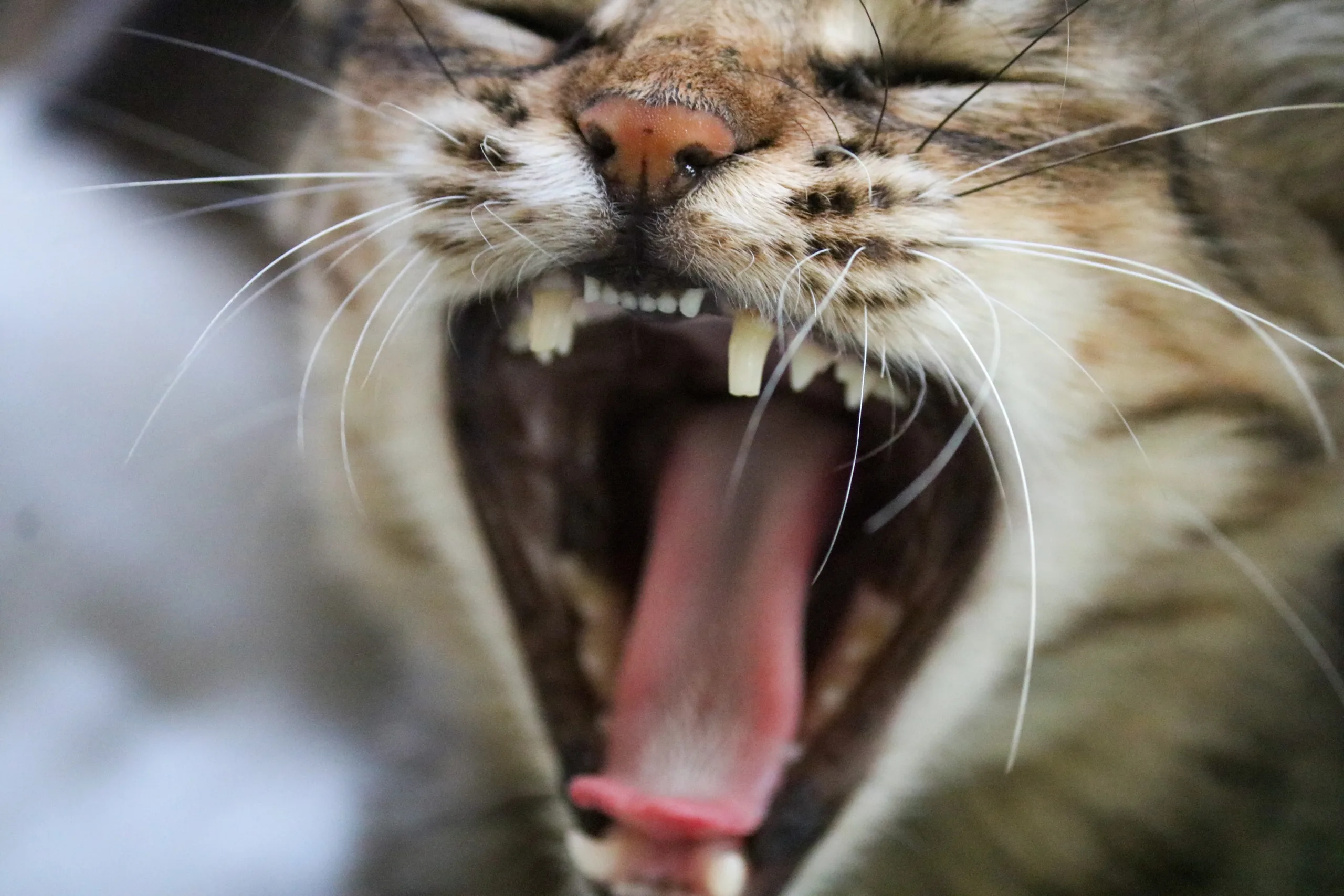Introduction
Why Do Cats Rub Their Teeth on You? Cats have a unique and intricate way of communicating with their human companions and other animals. One behavior that can sometimes leave us puzzled is when our feline friends rub their teeth on us. While it may seem unusual, this behavior is a form of communication and expression of their feelings. In this comprehensive guide, we will explore why cats rub the side of their mouth, why they rub their head on you and bite you, why they push their face into you, and why they rub against your legs. Understanding these behaviors can help deepen the bond between you and your feline companion.
For more about cats click here
Why Do Cats Rub the Side of Their Mouth?
Cats have scent glands located around their mouths, and rubbing the side of their mouth against you or other objects is a way of marking their territory. When they do this, they are depositing their unique scent onto you, which serves as a form of communication to other cats and animals. This territorial marking behavior is also a way for cats to feel more secure in their environment, as it creates a familiar scent that they can identify with.
Why Do Cats Rub Their Head on You and Bite You?
When a cat rubs its head against you and then bites you gently, it is often a sign of affection and trust. Cats have scent glands on their faces, and when they rub their head on you, they are marking you with their scent. This behavior is a way for cats to mark you as part of their territory and to express their comfort and bond with you. The gentle biting that may follow is often a playful gesture or a way for the cat to show their affection.
Why Do Cats Push Their Face into You?
Cats pushing their faces into you is another display of affection and trust. When a cat pushes their face into you, they are seeking physical contact and closeness. They may also do this to solicit attention, such as petting or cuddling. This behavior is a clear indication that your cat feels comfortable and safe with you.
Why Do Cats Rub Against Your Legs?
When a cat rubs against your legs, they are engaging in a behavior called bunting. Bunting is a friendly and social behavior that is a way for cats to mark you with their scent. It also serves as a way for cats to greet you and show affection. By rubbing against your legs, your cat is essentially claiming you as part of their territory and showing their trust and bond with you.
Understanding Feline Communication and Bonding
Cats use various behaviors to communicate and form bonds with their human companions and other animals. Rubbing their teeth, head, or face against you are all ways for cats to mark you with their scent, establish familiarity and security, and express their affection and trust. These behaviors are part of their natural instincts and are deeply rooted in feline social dynamics.
FAQs on Why Do Cats Rub Their Teeth on You?
1. Why do cats rub the side of their mouth?
Cats rub the side of their mouth to mark their territory with their scent. This behavior helps them feel more secure in their environment and serves as a form of communication to other cats and animals.
2. Why do cats rub their head on you and bite you?
When a cat rubs its head on you and then gently bites, it is a sign of affection and trust. The head rubbing is a way for cats to mark you with their scent, while the gentle biting is often a playful or affectionate gesture.
3. Why do cats push their face into you?
Cats push their faces into you to seek physical contact, closeness, and attention. This behavior is a display of affection and trust, indicating that your cat feels comfortable and safe with you.
4. Why do cats rub against your legs?
When a cat rubs against your legs, it is engaging in a friendly behavior called bunting. Cats use bunting to mark you with their scent and to greet you, showing their affection and bond with you.
Conclusion on Why Do Cats Rub Their Teeth on You?
Cats have a unique and intricate way of communicating with their human companions through various behaviors, including rubbing their teeth, head, and face. These actions are all expressions of their affection, trust, and territorial nature. When your cat engages in these behaviors, embrace them as signs of their bond with you and their desire to connect on a deeper level. Understanding feline behavior and communication can strengthen the relationship between you and your beloved feline companion.
